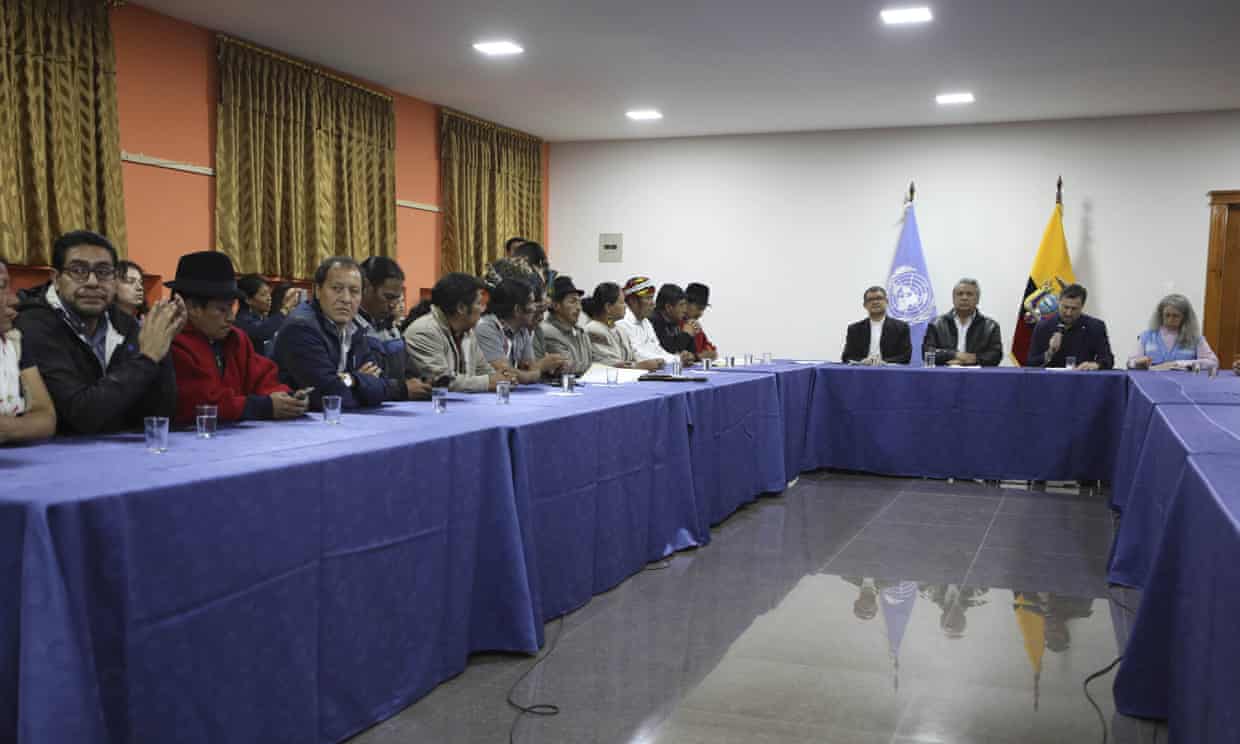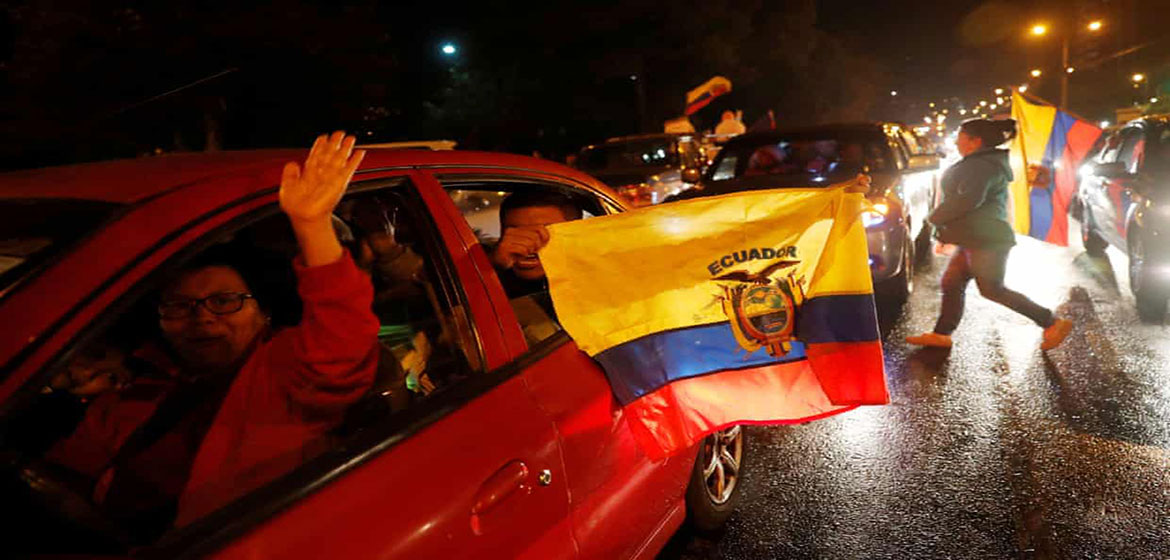President cancels austerity package that sparked weeks of violent street demonstrations
By Associated Press in Quito
Ecuador’s president, Lenín Moreno, has struck a deal with indigenous leaders to cancel a disputed austerity package and end nearly two weeks of protests that have paralysed the economy and left seven dead.
Under the agreement, Moreno will withdraw the International Monetary Fund-backed package, known as Decree 883, that included a sharp rise in fuel costs. Indigenous leaders, in turn, will call on their followers to end protests and street blockades.
“Comrades, this deal is a compromise on both sides,” Moreno said. “The indigenous mobilisation will end and Decree 883 will be lifted.”
The two sides will work together to develop a package of measures to cut government spending, increase revenue and reduce Ecuador’s unsustainable budget deficits and public debt.
In the park that was the centre of the protests, demonstrators armed with wooden sticks and improvised shields shouted: “We did it!”
“I’m so happy I don’t know what to say. I don’t have words, I’m so emotional. At least God touched the president’s heart,” said protester Rosa Matango. “I am happy as a mother, happy for our future. We indigenous people fought and lost so many brothers, but we’ll keep going forward.”
Caravans of cars roamed the streets early on Monday honking in celebration, passengers shouting, banging pots and waving Ecuadorian flags.
“The moment of peace, of agreement, has come for Ecuador,” said Arnaud Peral, the United Nations’ resident coordinator in and one of the mediators of the nationally televised talks. “This deal is an extraordinary step.”
Wearing the feathered headdress and face paint of the Achuar people of the Amazon rainforest, the president of the Confederation of Indigenous Nations, Jaime Vargas, thanked Moreno and demanded improved long-term conditions for indigenous Ecuadorians.
“We want peace for our brothers and sisters in this country,” Vargas said. “We don’t want more repression.”

Indigenous leaders (eft) attend negotiations with President Lenín Moreno (third from right) in Quito. Photograph: Fernando Vergara/AP
Protests over the austerity package have blocked roads, shuttered businesses from dairies to flower farms and halved Ecuador’s oil production, forcing a temporary halt to the country’s most important export.
In a shift from the heated language of the last 10 days of protests, each side at the negotiations praised the other’s willingness to talk as they outlined their positions in the first hour before a short break.
Other indigenous demands included higher taxes on the wealthy and the firing of the interior and defence ministers over their handling of the protests.
“From our heart, we declare that we, the peoples and nations, have risen up in search of liberty,” Vargas said. “We recognise the bravery of the men and women who rose up.”
Earlier in the day, hundreds of black-clad riot police drove protesters out of north-central Quito’s Arbolito Park and into surrounding streets.
The park was full on Friday with mostly peaceful protesters chanting against the government. But by Sunday afternoon the air was white with smoke from burning tyres and teargas after more than 24 hours of clashes between police and hardcore protesters with sticks and shields of satellite dishes or plywood. Adjoining streets were piled high with burned tires, tree branches and paving stones.
The public ombudsman’s office said on Sunday that seven people had died in the protests, 1,340 had been hurt and 1,152 arrested. The government loosened a 24-hour curfew imposed on Saturday, allowing people to move freely around the capital between 11am. and 8pm.
The protests have drawn thousands of Ecuadorians from outside the indigenous minority.
Moreno served the former president, Rafael Correa, as vice-president before he become president and the two men went through a bitter split as Moreno pushed to curb public debt amassed on Correa’s watch.
Source:
Related to SDG 16: Peace, justice and strong institutions and SDG 10: Reduced inequalities



